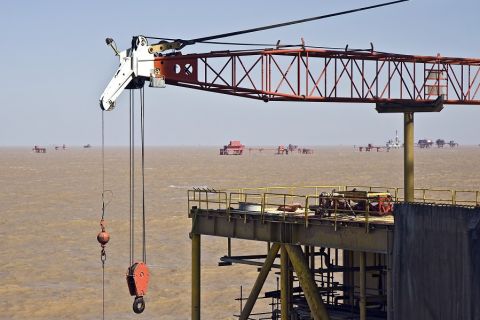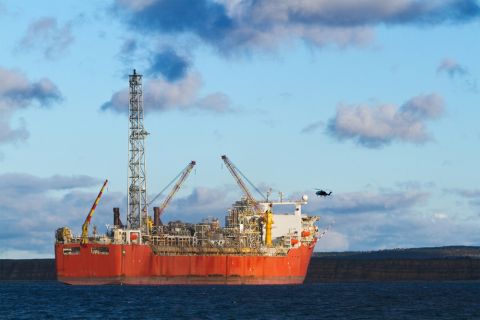Pipeline operator Kinder Morgan Inc. on Dec. 5 said it expects core earnings to decline next year as it increases its dividend and uses proceeds from asset sales to pay down debt.
The company forecast 2020 adjusted pre-tax earnings of $7.6 billion compared with its anticipated $7.8 billion in 2019.
Kinder Morgan expected to generate $5.1 billion of distributable cash flow in 2020, about 3% higher than the current forecast for 2019.
CEO Steven Kean pointed to new projects coming online, lower interest expense and improved realized prices in its CO2 business, though he said the growth was partially offset by lower re-contracting rates on some natural gas pipeline assets and crude and condensate assets.
The company said it plans to increase its dividend to $1.25 per share, annualized, next year, and expects to use internally generated cash flow to fully fund the dividend. The 2020 dividend would be up 25% from last year, the company said.
It expects to reduce the ratio of debt to adjusted pre-tax earnings to 4.3 next year, compared with an anticipated 4.4 by year end. It will use proceeds from asset sales to pay down debt.
Recommended Reading
Oceaneering Won $200MM in Manufactured Products Contracts in Q4 2023
2024-02-05 - The revenues from Oceaneering International’s manufactured products contracts range in value from less than $10 million to greater than $100 million.
E&P Highlights: Feb. 5, 2024
2024-02-05 - Here’s a roundup of the latest E&P headlines, including an update on Enauta’s Atlanta Phase 1 project.
CNOOC’s Suizhong 36-1/Luda 5-2 Starts Production Offshore China
2024-02-05 - CNOOC plans 118 development wells in the shallow water project in the Bohai Sea — the largest secondary development and adjustment project offshore China.
TotalEnergies Starts Production at Akpo West Offshore Nigeria
2024-02-07 - Subsea tieback expected to add 14,000 bbl/d of condensate by mid-year, and up to 4 MMcm/d of gas by 2028.
US Drillers Add Oil, Gas Rigs for Third Time in Four Weeks
2024-02-09 - Despite this week's rig increase, Baker Hughes said the total count was still down 138 rigs, or 18%, below this time last year.




